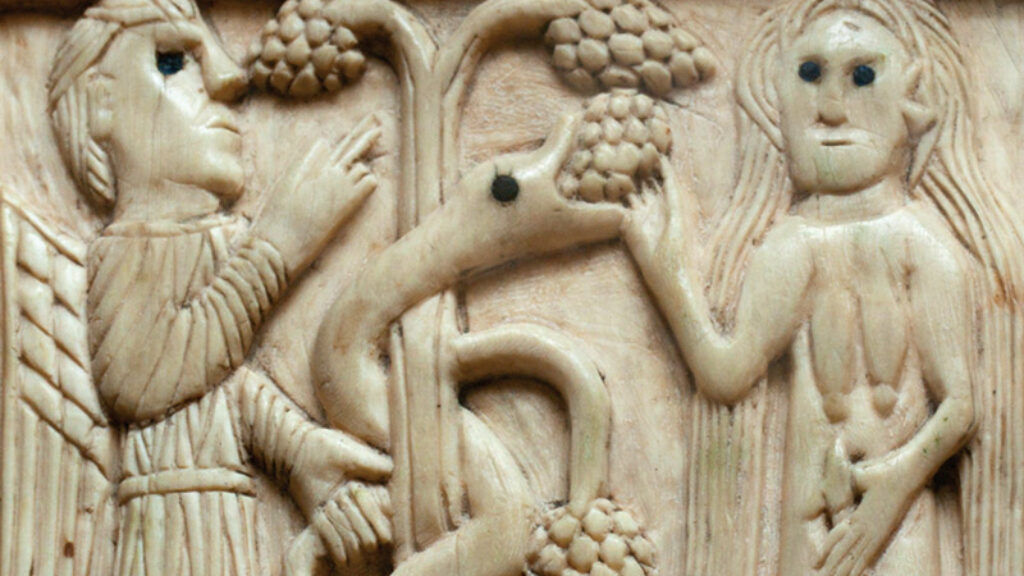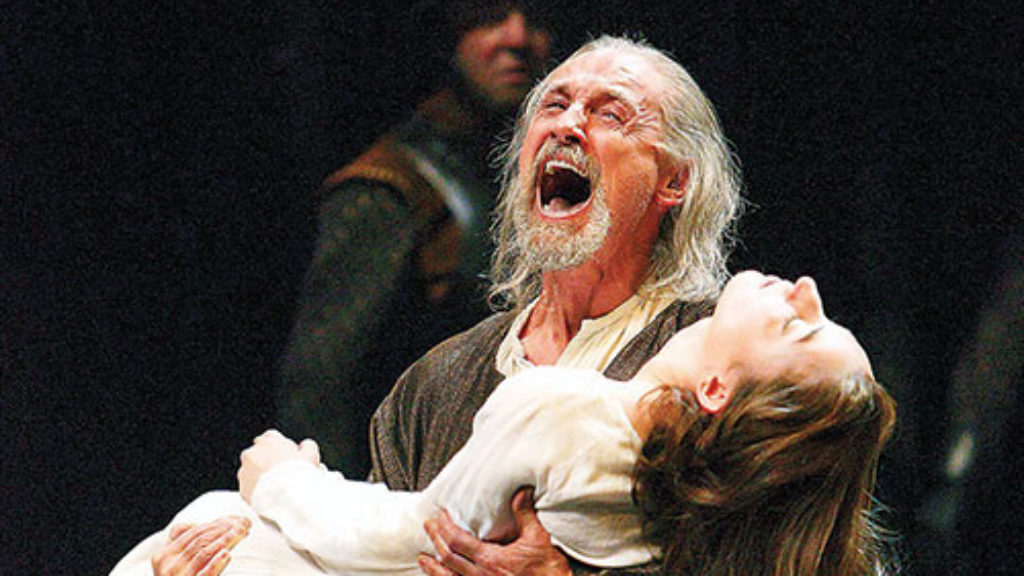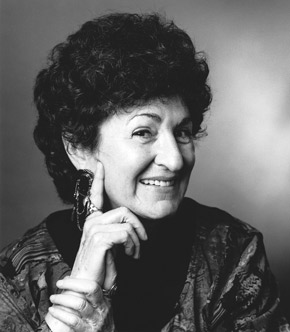It Is Either Serious or It Isn’t
Chana Bloch is celebrated for her translations of Yehuda Amichai, Dahlia Ravikovitch, and the Song of Songs, but her own poetry has sometimes been overlooked. Her volume of new and selected poems should remedy that. For years, Bloch said recently, she had tacked to her bulletin board a quote by the Objectivist George Oppen: “Clarity, clarity, surely clarity is the most beautiful thing in the world . . . I have not and never did have any motive of poetry.” The poems collected in this volume were certainly crafted in this spirit. In “Hester Street, 1898,” she writes:
No one told them to smile
and they’re too busy anyway
with their wooden pushcarts:
Aprons! Prayerbooks! Pickles in brine!
They regard the camera with suspicion.
Butting, shoving, elbow and shoulder,
they tilt the street off-frame.
This is the world they dreamt of
when they slept in mud and misery?
If you climb the skyscrapers up to the sky
you can feel the moon on your cheek,
cool and shivery, like calf’s-foot jelly.
A Bloch poem is like a stone thrown deep into the well of experience. The strong, contained sound it makes as it sinks below the surface takes its place inside the silences of real poetry.
Bloch, who is 75, has lived for many years in Berkeley, California, where she is professor emerita of English at Mills College. The poems in Swimming in the Rain focus on family, sensuality, the Bible, Jewish history, and mortality. Sometimes, as in her poem “Brothers,” themes overlap. In this case, family and the Bible, her two young sons, and Cain and Abel. After reading a deliciously chilling witch’s tale to them, she chases after her sons: “I catch you, I eat you.” But instead of the expected ritual laughter, horror:
The stricken voice that cried: Eat him!
Eat my brother.
Bloch assembled this volume while undergoing treatment for cancer, and many of the poems address mortality: roadside lilac’s, her father’s, her own:
It is either serious or it isn’t.
The indeterminate mass, 14.8 cm long,
is either a cyst or a tumor.
If a tumor, either benign or malignant.
If malignant, either slow-growing
or aggressive, in which case
they may contain it. If not, no one else will recall
this unseasonable day of waiting
exactly as you felt it, from the inside out
—the way the heat of your mind
dropped a few degrees
and grew very quiet. The sediment
settled. You managed to divert
yourself with words. Then
you consulted the uncommon
clarity of the sky.
The reader of this poem, “Inside Out,” is brought along slowly, as if by the hand, to a genuinely portentous moment, “this unseasonable day of waiting.”
The poems originally collected in Mrs. Dumpty (1998), and well represented in this collection, have a similar movement. Employing Bloch’s simple, stark, trademark strokes, they map the futility of a life lived in the service of a husband’s mental illness.
All year I dropped words into the well
of his silence. I could hear them
falling, could measure
the darkness they displaced.
I bent over the water and saw
my own face looking down.
Now he won’t look at me.
He is watching the light
puddle on the floor: I’m not listening
Bloch was raised on 167th Street in the Bronx by Ukrainian-Jewish parents whose split-level notions of observance foreshadowed her own: “Every Friday night Mother would light the Shabbes candles and my father would light his cigarette from the candles, the candles.” She was sent on weekends to learn Yiddish at the Sholem Aleichem Folkshul while in high school and
sometimes spoke Yiddish with her grandmother who spoke little English. Hebrew, which would become central to her literary career, came later (Cornell, Brandeis, Jerusalem), but her earliest translations were from the Yiddish. In her 20s, she workshopped translations of the great Yiddish poet Abraham Sutzkever with Robert Lowell, who told her “You can learn to write from your own translations.” She has said that it was the best writing advice she ever received:
You might say that translation is a form of apprenticeship—not to a master craftsman, but to the genius of language itself. When you translate you are constantly choosing among alternatives in order to convey meaning, register, image, mood, music; each time you choose, you are exercising muscles that you need in shaping your own work.
In the poems assembled in Swimming in the Rain it is easy to find the marks of the translator. The Yiddish vein, perhaps inevitably, stands out most clearly. She has referred to Yiddish as the “mame-loshn of home and the market place, of everyday life.”
“You have seven gray hairs,” says my son,
my firstborn,
and lifts me off the floor.
Pokes an accusing thumb into
Mama Pudding,
fixes a beam of truth and refuses
to gentle it.
Bloch’s collaboration with Yehuda Amichai in the 1980s and her translation of the Song of Songs in the 1990s fed an altogether different stream in her poetry. Bloch is not a theological reader and she approaches the Song as a “model for a boldly secular eroticism.” Like Amichai’s love poems, Bloch’s can be both joyous and jaundiced in the same poem, as in these lines, originally published in Blood Honey:
Sometimes I want to sink into your body
with the fever that spikes inside me
to be a woman
who can open a man.
Why must I be only softness and haunches,
a satin cul-de-sac?
Given Bloch’s deep exposure as a translator to various poetic styles, it is remarkable that her own style has over the years remained so singularly her own. It is a style supple enough to embrace the lyrical and reflective strains in her poetry, and the emotion that runs through all of it. It is a privilege to be rowed by the oars of Bloch’s poetry through her many worlds.
Suggested Reading

Fruit of the Fall
The forbidden fruit has been said to be anything from a fig to a banana, so how did the world settle on an apple?
Jewish Geography
The Jewish peddler, the “slave of the basket or the pack; then the lackey of the horse,” did not have an easy time of it.

Spinoza in Warsaw: Fragments of a Dream
“Having rested in his grave for 250 years, Baruch Spinoza came to the conclusion that just lying around like that was without telos” and decided to try to make it in Warsaw. A Yiddish satire, translated and with an introduction by Allan Nadler.

Upon Such Sacrifices: King Lear and the Binding of Isaac
How Shakespeare helps us think about the akedah, and vice versa.

Comments
You must log in to comment Log In